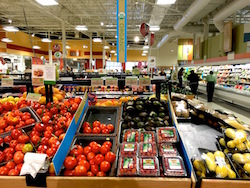In 2011, the Food Safety Modernization Act (FSMA) was introduced by the FDA. The program serves as a new method of regulating the growth, harvesting, and processing of agricultural goods. While the aim of this new regulatory system is to increase food safety and reduce the prevalence of foodborne illness, there are some aspects that have become a burden on smaller farms that don’t have a large budget to work with.
According to the FDC, nearly 50 million Americans are sickened by food poisoning each year, with almost 130,000 of them needing to be hospitalized. Many of these cases are reported to the FDA and result in a costly recall of the product from store shelves. Furthermore, the ensuing lawsuits are costing the food industry billions. In the past, the FDA has taken a reactionary approach to food contamination – if a problem was reported, they investigated it. Now, the implementation of the FSMA means that the FDA will be setting mandatory regulations that aim to proactively prevent contaminants from reaching the market.
As of 2018, any farms that gross more than $25,000 per year in produce sales will be subject to a long list of requirements and will need to have each of their crops individually certified as food safety compliant. A number of analysts have estimated that the cost of complying could be anywhere from $50 up to more than $12,000 per acre, depending on the current condition and practices of the farm. Of course, such additional expenses could be too much to bare for many small farms, allowing corporate interests to take up a larger share of the market.
 Many small farms sell their produce locally at farmer’s markets, through co-ops, or by networking on online farm directory sites that connect suppliers with distributors. Under the new regulations, farms that sell less than $25,000 in produce per year will not be subject FSMA rules. Thus, the smallest farms won’t feel the impact as much. Furthermore, it’s unclear whether the FDA plans to set regulations for the growth of herbs and other alternative crops. For example, the companies that you find listed in a dispensary directory will probably not be subjected to the scrutiny as a directory of agricultural suppliers, despite the fact that many states are currently developing legislation in that area.
Many small farms sell their produce locally at farmer’s markets, through co-ops, or by networking on online farm directory sites that connect suppliers with distributors. Under the new regulations, farms that sell less than $25,000 in produce per year will not be subject FSMA rules. Thus, the smallest farms won’t feel the impact as much. Furthermore, it’s unclear whether the FDA plans to set regulations for the growth of herbs and other alternative crops. For example, the companies that you find listed in a dispensary directory will probably not be subjected to the scrutiny as a directory of agricultural suppliers, despite the fact that many states are currently developing legislation in that area.
A number of outspoken critics have expressed the concern that, although the new regulations look great on paper, the authorities might be overlooking the economic impact of their implementation. Still, FSMA proponents provide the rebuttal that the new system is being rolled out gradually over the course of the next four years, arguing that such a time frame should be generous enough to allow for farms to obtain the necessary financing to make the transition.

